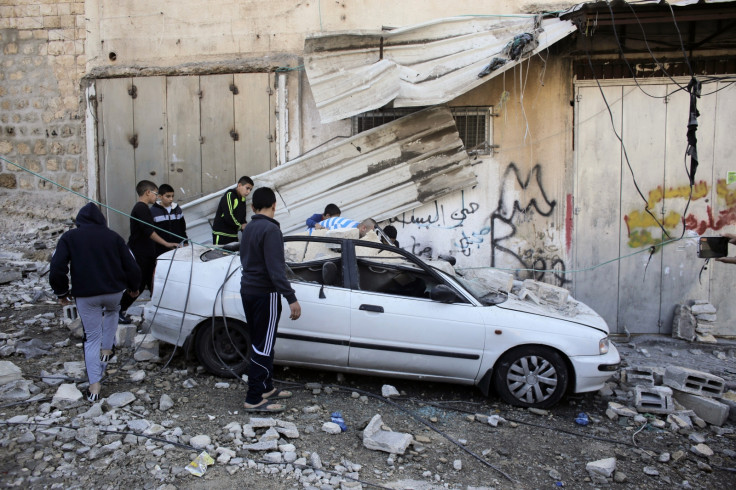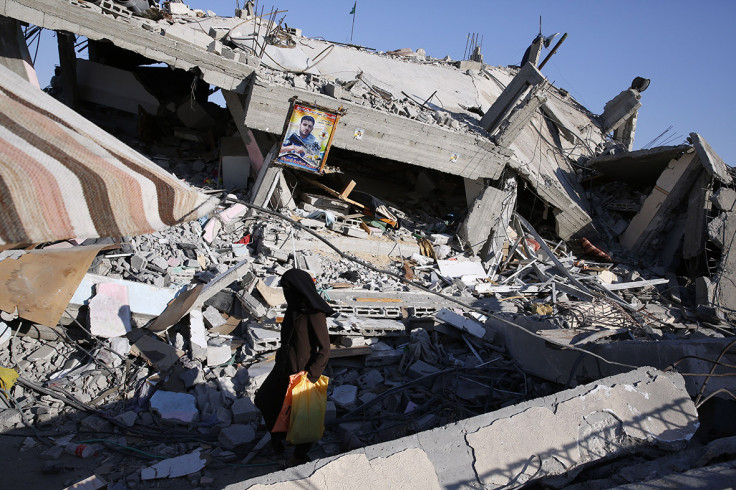Israel Must Not Repeat Gaza Mistakes over Jerusalem Synagogue Massacre

When you see the photographs, it's hard not to get angry. The prayer shawls, dishevelled, in a pool of blood. The chaotic, bloody aftermath of a brutal attack on a synagogue that has left five dead. It's not just the act itself that stirs anger, but the nature of it. Synagogues, like churches or mosques, are places of refuge for the body and the soul. Evil isn't supposed to penetrate their walls.
The two terrorists, like others before them, again shattered that illusion. Hamas, sickeningly, called it "resistance". No resistance, only murder.
The emotional impact of the images, and the painful sadness for families ripped apart, gives way to resignation. Israeli ministers appear on television, one after the other, to condemn the violence that has taken Jerusalem to the edge of chaos. They threaten retribution. They parrot their prime minister's warning that the government will "react harshly." Israeli news channels report that Netanyahu is convening a security cabinet. Hours later, houses belonging to the terrorists' families are demolished. They are, of course, guilty by association.
Other measures were reported to be under consideration by the public security minister, Yitzhak Aharonovitch. Security checks were being set up to vet Palestinians leaving Arab neighbourhoods. One measure mooted was to relax the laws on carrying personal firearms. It is astonishing how the reaction of some to acts of violence is to make it easier for others to commit acts of violence. But Israeli actions so far do not seem to match Netanyahu's rhetoric in the immediate aftermath, which promised a "harsh reaction". Jerusalem, Ramallah, Israel and the West Bank wait for a more painful response.
That response cannot – must not – come as it has before. If the cycle of tension and violence, accusation and reprisal is to be broken, Netanyahu and Abbas have to act quickly. They both have to act not in their own political interests, but in a way that decreases the pressure within their communities.
Already, it feels too late. Netanyahu has to channel Rabin and stand up to those on the religious right of Israeli politics. He must show courage and urge those contemplating revenge attacks to stand down. He has to direct the Shin Bet security service not only to remain vigilant against threats from Palestinian lone wolves and terror groups, but from individuals and groups possessing Israeli passports.
There is a parallel lesson from the summer of violence against Hamas. The world was shocked by the cold kidnapping and murder of three Israeli teenagers that sparked the conflict. President Obama and Prime Minister Cameron stood in solidarity with Israel and proclaimed that killing and terror could never be justified for political ends. But in its response, Israel won the military engagement with Hamas but lost the propaganda war.
The conflict now is not remembered for the lost lives of three innocent Israeli teenagers, but for the disproportionate Israeli bombardment of Gaza that led to the deaths of over a thousand Palestinians, including hundreds of children. The press operation of that summer was not geared to rationally explaining why Israel was taking action against a brutal terrorist organisation. It was designed, irrationally, to fire up a base of supporters in the U.S.

Today, Israel risks making the same mistakes. The memory of five Israeli men who lost their lives in the synagogue may be replaced by the actions of a state seeking revenge.
This morning, Haaretz's Barak Ravid reported that Israel's Government Press Office had sent Israeli outlets six photographs from the scene of the massacre. Two of the photos were "particularly gruesome, showing the bodies of two of the victims." The government stands accused of releasing images of the dead to stoke public fury.
These are actions borne of anger and high emotion. But we don't expect or want governments to act as individuals, making policy from the heart and not the head. We demand rationality; we need to know that governments act in our best interests, doing what is necessary to keep us safe.
Netanyahu's government has been too emotional for too long. No government has a right to tell us how to feel about what we see in the media. But it's time we told Netanyahu and his government to take the emotion out of their decisions. Otherwise, the bloody status quo will continue with yet more violence.
Ross Cypher-Burley is a former spokesman for the British ambassador to Israel, and now works for strategic communications firm Portland. You can follow him on Twitter here.
© Copyright IBTimes 2025. All rights reserved.






















